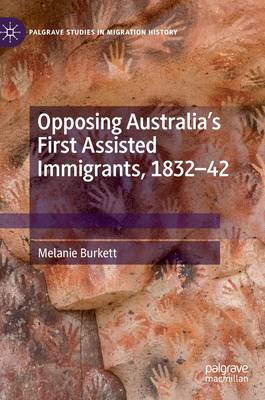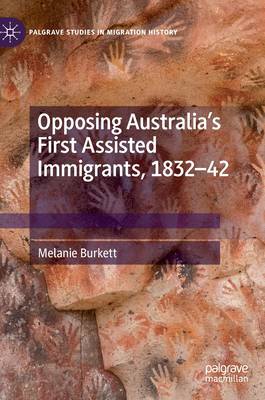
- Afhalen na 1 uur in een winkel met voorraad
- Gratis thuislevering in België vanaf € 30
- Ruim aanbod met 7 miljoen producten
- Afhalen na 1 uur in een winkel met voorraad
- Gratis thuislevering in België vanaf € 30
- Ruim aanbod met 7 miljoen producten
Zoeken
Opposing Australia's First Assisted Immigrants, 1832-42
Melanie Burkett
€ 137,45
+ 274 punten
Uitvoering
Omschrijving
This book unravels the paradoxical denigration of the first significant group of free (non-convict), working-class emigrants to the Australian colony of New South Wales in the 1830s. Though their labour was sorely needed, the colonial elite rejected the new arrivals on the grounds that they were 'lazy' and 'immoral'. These criticisms stemmed from political, economic, and cultural motivations that ultimately sought to protect, legitimise, and cement the elite's financial and social hegemony. The author seeks to explore the ulterior motives behind the public denouncements of immigrants by exposing the conflicting and opportunistic rationales used. Brought to Australia from Britain and Ireland through the experiment of 'government-assisted migration,' these immigrants are often remembered as 'brave pioneers' today, but this book exposes the deep antagonistic attitudes toward immigration that remain entrenched in Australian society. Uncovering early forms of class antagonism in Australia,this book presents useful insights for those researching Australian history and migration studies, as well as scholars of colonial history, by providing a model for re-evaluating and confronting a long-standing pattern in most settler societies: hostility toward immigrants.
Specificaties
Betrokkenen
- Auteur(s):
- Uitgeverij:
Inhoud
- Aantal bladzijden:
- 256
- Taal:
- Engels
- Reeks:
Eigenschappen
- Productcode (EAN):
- 9783030849191
- Verschijningsdatum:
- 27/10/2021
- Uitvoering:
- Hardcover
- Formaat:
- Genaaid
- Afmetingen:
- 148 mm x 210 mm
- Gewicht:
- 517 g

Alleen bij Standaard Boekhandel
+ 274 punten op je klantenkaart van Standaard Boekhandel
Beoordelingen
We publiceren alleen reviews die voldoen aan de voorwaarden voor reviews. Bekijk onze voorwaarden voor reviews.











